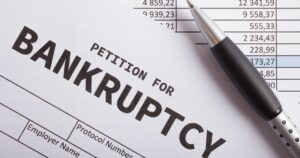Can you stop bankruptcy after you have filed?
As a debtor, you decide to file for bankruptcy. If you voluntarily wish to dismiss the case after doing so, you have that right.
However, before you dismiss your bankruptcy case, you should consult with an attorney to make sure it is the right call. After all, the moment you dismiss, creditors are free to resume collection efforts.
Deciding to stop your bankruptcy is serious, and it can have long-term consequences. Not only should you carefully consider filing, but you must know the short and long-term effects if you stop a proceeding after it begins.
What Are My Options If I No Longer Want to File for Bankruptcy?
You may have decided, after you start, that bankruptcy is not the right option for you. There are plenty of consumers who start the bankruptcy process only to change their minds. For example, you may have had an emergency that forced you to file, such as a serious illness or injury. If that reason is no longer there and you think you can pay down your debts, you may want to revoke the bankruptcy filing entirely.
Can you cancel it once it begins? Not always. It will depend on the type of bankruptcy you file for and how far into the process you are.
Canceling Chapter 13 Bankruptcy
Chapter 13 bankruptcy is a court-approved debt restructuring and repayment plan. The court and creditors agree to a set number of payments, and a court-appointed trustee oversees the entire payment plan.
If you want to stop your Chapter 13 bankruptcy, the judge has the final say. You will request a voluntary dismissal to the court, and even if the judge grants your dismissal, the bankruptcy filing remains on your credit report. This means you will still have the negative effect of filing for bankruptcy without actually completing it.
Your bankruptcy case number and record will also stay on your credit file for the next ten years, and you do not have to complete the bankruptcy for it to affect your credit score.
You should think twice before requesting a dismissal on your Chapter 13 bankruptcy case. There are financial circumstances that made you file in the first place, and these may come back after your dismissal. If you want to resume filing for bankruptcy, the process becomes more challenging for you as well. You often have a six month waiting period before you can refile for Chapter 13 bankruptcy, which means you will not get relief or the automatic stay you were enjoying before.
Likewise, creditors and trustees will heavily scrutinize a renewed bankruptcy application. The court will be stricter, and they will evaluate your bankruptcy carefully to see if you truly qualify. They will also be looking for the potential of you dismissing the case again.
When You Are in the Middle of Repayment
If your case has already reached the repayment phase, it is harder to cancel Chapter 13 bankruptcy. At this point, you have already entered into a court-approved repayment plan on your debts. You have signed papers that you will pay those debts in the agreed-upon amounts for a set number of years. Therefore, you would need to consult with your attorney and see if you could request a dismissal. If you are granted one, you will no longer have court protections. Creditors may resume collections, and you will have to repay the original monthly amount (not the lowered court amount) or possibly pay off the entire debt to avoid liens, garnishments, and lawsuits.
Canceling Chapter 7 Bankruptcy
Once you file for Chapter 7 bankruptcy, you cannot request a voluntary dismissal.
Instead, your attorney files a Motion to Dismiss with the court. The motion is then presented in person to the judge overseeing your case. The judge has full discretion to deny or approve the dismissal request. Also, the judge and trustee will require your testimony to see why you want to dismiss.
Also, the trustee will have the right to oppose your reasons for dismissal. For example, if you are trying to protect an asset that you will lose in bankruptcy, and that is your reason for requesting the dismissal, the trustee will most likely oppose it because selling that asset ensures your creditors are paid. Therefore, you may have your dismissal denied by the judge.
Getting out of Bankruptcy Is Harder than Pushing Through
While you could have valid reasons to stop bankruptcy, the process of successfully canceling one is much harder on you, your finances, and your credit than just going through the process and completing it. While you might not like the idea of a bankruptcy on your credit report, getting that fresh financial start could be what you need.
Regardless, you should consult with your attorney before you file for bankruptcy. Your attorney will go over the risks and benefits and discuss options if you change your mind and wish to cancel. Your attorney can also present your argument in court, which may increase the odds the judge will approve your dismissal request.
Hire a Bankruptcy Attorney Today to Explore Your Options
Whether you want to file for Chapter 7 or Chapter 13 bankruptcy, or you wish to explore your legal options for canceling a bankruptcy proceeding you have already begun, speak with a bankruptcy attorney immediately.
Bankruptcy is incredibly complicated, and even more so when you wish to cancel a process already started. It is best that you consult with a bankruptcy attorney in your area to see if it is possible to cancel and the long-term repercussions of doing so.
To explore your bankruptcy options, schedule a consultation with our attorneys today. We can help you through each stage of the bankruptcy process, including filing or dismissing.

